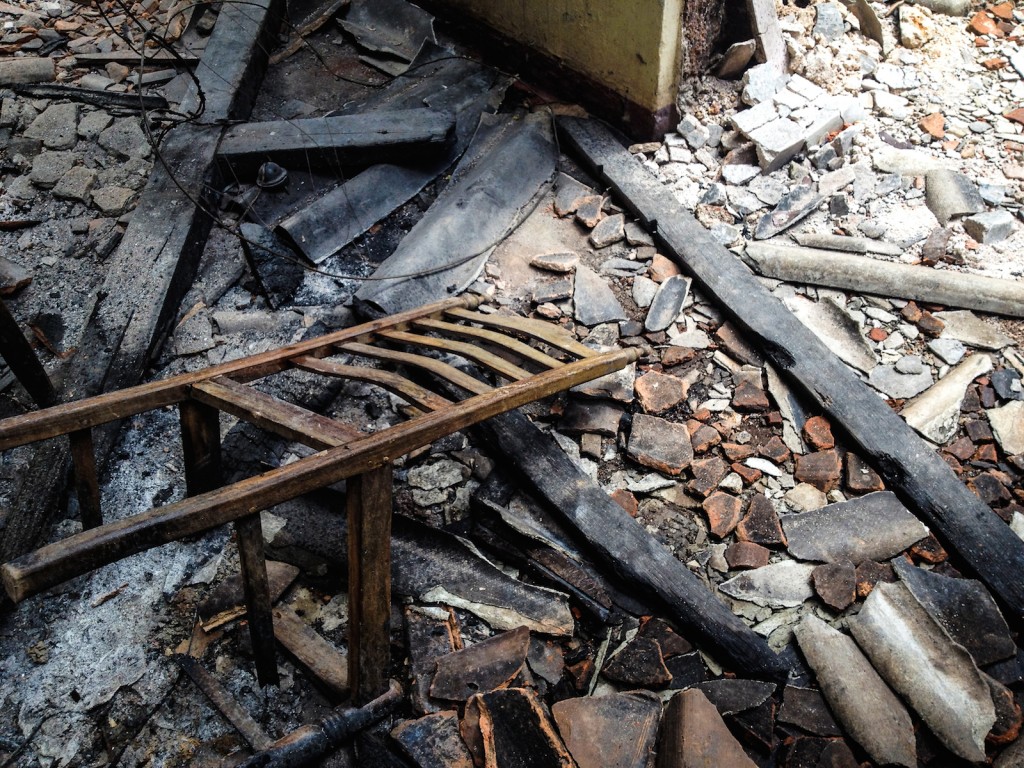Photo by Thyagi Ruwanpathirana
The recent spate of senseless attacks on the Muslim community was brought about by the convergence of a chronic breakdown of law and order, manipulative politics and the sinister provocation of religious intolerance. It is to our collective shame that these trends were allowed to fester into violence and death in a land of religions.
Since religion is sadly an intrinsic part of this crisis, this reflection highlights seven realities within which our religions are to rediscover their role for the common good, in our plural and violent society. In the idiom of the Bible, seven signifies wholesomeness.
Truth telling
The shared role of religion is interpretative truth telling in a changing world. This requires constant clarification on the purpose of life and the anticipated fulfilment and integration this brings all life. When interpretation however distorts the core teaching of any religion, others of that respective religious community are obliged to engage in counter corrective interpretation. Silence discredits both the religion and the community.
Interpretative truth telling can never be done in vacuum. Other versions of religious and philosophical truth also prevail. Consequently religion today has to decide between dialogue with other truth traditions so that truth may abound, or rivalry that inevitably leads to polarisation, suspicion and animosity.
Devious political strategies
The nature and strategy of divisive politics is to entice and silence religious truth telling for political gain. This is done through the granting of favours, gifts and politicised appointments. Since submission to this trap undermines religious independence and credibility, religion in Sri Lanka today has to decide whether it will succumb to this type of enticement or remain vigilant to resist these snares always.
Crossing Boundaries
Communal party politics, characteristic of our political culture, have accentuated communal polarisation. Our religions are to counter this trend by crossing boundaries to offer solidarity, especially when another religion is ridiculed or harassed. Such affirmative measures are built and sustained through personal friendships. If we are to live together, religions in Sri Lanka must learn to become each other’s friends. It is then also that theories of religious superiority and contamination through association will be addressed by “friends” from within their respective religions. Inter religious solidarity and intra religious conversations are to go hand in hand
The value of religious freedom
The freedom of religion enshrined in our constitution and world charters and covenants is in recognition that religion has a contribution to make towards a better world for all; and is not to be seen as concessions made grudgingly by a distant secular force. Religion in Sri Lanka is consequently to decide whether it will defend religious freedom for all so that truth telling will flow from each to the other for the common good or subvert this freedom as a destabilising conspiracy.
Arresting fundamentalism
A primary obstacle to healthy religious co-existence is religious fundamentalism; the ideology that one religion has monopoly over all truth and that all others are to be converted, subdued or excluded, if the world is to be a better place. Since fundamentalism stems from the ambition of religious leaders in search of power bases, religious moderates in Sri Lanka today are to decide whether they will contest this form of extremism in defence of truth that endorses coexistence or allow it to spread with growing malice.
Sustainable spirituality
Engagement in public affairs calls for a rhythm of engagement and detachment. Continuing social interaction requires corresponding self-scrutiny in order that the inner person stays humble and enlightened to enable goodwill to spill over and embrace ones neighbour and all life. To the extent that this rhythm is nourished; religious animosity, violence, divisiveness and exclusion will be shunned in Sri Lanka today. The light indeed dispels the darkness.
Reconciliation through vulnerability
While religion is to be wary of siding with policymakers the only side it can and must take is the side of marginalised victims; those of all communities who are subject to the evils of poverty, injustice and violence. It is from here that religion discovers the call to work for a governance of just healing, in which victims are vindicated, repentant perpetrators forgiven and reconciliation descends without partiality like the dew.
With Peace and Blessings to all.
